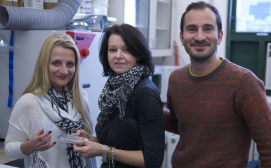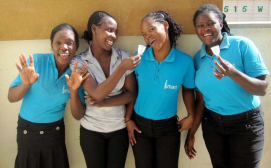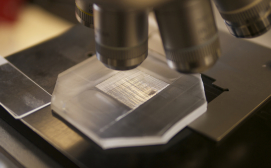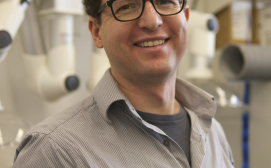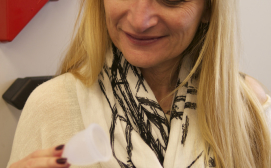Project Lead(s): Leisa Hirtz
Issue
Girls and women in low-resource settings face many challenges related to their personal hygiene and sexual health needs.
Commercial hygiene products are difficult to access and it is widely reported that many girls resort to high-risk sexual behaviour in order to purchase sanitary pads.
Those that do have access to disposable sanitary products are further challenged with limited disposal options, as toilets are rarely available.
Although re-usable menstrual cups are on the market, they require extensive washing to avoid contamination, something that is not feasible in many homesteads in low-resource settings.
Solution
The project team developed a female personal hygiene kit containing products to assist adolescent girls and women in low-income settings with menstrual hygiene management, contraception and HIV prevention.
Through use of innovative technology, a super anti-bacterial silicone elastomer has been developed with which to produce menstrual cups (Ruby Cup).
Where water is in short supply to properly wash the cup, this material enhancement improves personal health safety for the end user. They have also redesigned the cervical cap (Ruby Cap), designed to provide a physical barrier for the cervix against sperm and viruses, and turned it into a dual-function menstrual cup/cervical cap (Ruby Duo).
Menstrual Hygiene Management (MHM) education programs have also been developed and will continue to be updated by partner NGOs in Kenya, Tanzania and Uganda.
Outcome
The team was able to successfully alter the properties of the silicone material used in the manufacture of the Ruby Cup to make it anti-bacterial and to improve the ability to clean it after use in conditions where water is scarce.
Laboratory testing showed a three- to four-fold reduction in bacteria levels in the liquid-infused silicone, versus the conventional silicone cup.
Images taken by fluorescence microscopy gave a clear visual representation of the inability of bacteria to adhere and form a biofilm on the liquid-infused surface.
The project teams plans to apply for Transition To Scale (TTS) Phase II funding.
Further research will involve a randomized clinical trial to compare the antibacterial properties of a traditional menstrual cup with the Ruby Cup.
Manufacturing of the first working prototypes of the Ruby Cup is ready to begin, with the aim to launch the product on the market by the fall of 2016.
The team has applied to both the UNICEF Innovation Fund and the DREAMS Innovation Challenge.

